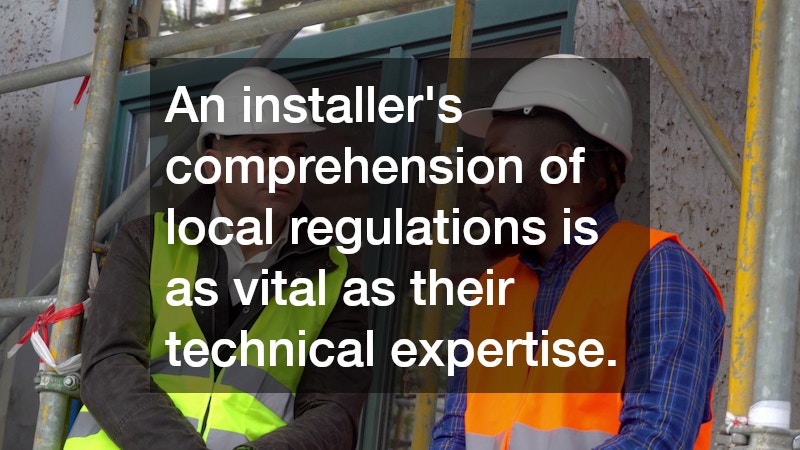How to Choose the Right Septic Installer for Your Property
When it comes to installing a septic system on your property, choosing the right installer is crucial. This decision can impact the efficiency, longevity, and compliance of your septic system. In this article, we will explore key factors and common queries to guide you in selecting the right septic installer for your needs.
How Do I Assess the Qualifications of a Septic Installer?
Verify Licensing and Certifications
One of the first steps in assessing a septic installer is to verify their licensing and certifications. This ensures they meet state and local requirements, showcasing their competence and professionalism.
Licenses indicate that an installer has undergone necessary training and has the knowledge to perform the job safely and efficiently. Certification programs often require continuing education, keeping installers updated on the latest industry standards.
It’s also prudent to cross-verify credentials with local authorities to ensure they are current and valid. This step protects homeowners from potential legal issues arising from improper installation.
Evaluate Experience and Track Record
Beyond credentials, assess an installer’s experience and track record in the industry. Experience often correlates with better problem-solving abilities and familiarity with various septic system types.
Researching customer reviews and testimonials can provide insight into an installer’s reliability and quality of work. A history of positive feedback and successful projects is a good indicator of expertise and customer satisfaction.
Additionally, examine if the installer has experience with properties similar to yours, which could influence the complexity and requirements of the installation process. A well-experienced installer can foresee potential challenges and mitigate them effectively.
What Should I Know About Septic System Installation Costs?
Understanding the Cost Breakdown
Understanding the cost of septic system installation requires analyzing its various components. Typically, costs are broken down into materials, labor, and equipment usage.
Materials can vary based on the system type and property specifics, while labor costs depend on the installation’s complexity and duration. Equipment charges may include machinery required for excavation and installation.
A comprehensive understanding of costs prevents unexpected expenses and ensures that budgeting aligns with your financial plans. It’s essential to request detailed breakdowns from your prospective installers for transparency.
Requesting and Comparing Quotes
Once you understand the potential costs, requesting quotes from multiple installers is crucial. Comparing these quotes helps ensure you receive maximum value for your investment.
While assessing quotes, it’s not just about choosing the cheapest option but evaluating the services included and the quality of work promised. Often, extremely low quotes may lack essential components or indicate inferior materials.
Additionally, ask for clarifications on any ambiguous expenses and negotiate terms where necessary. This diligence helps in making an informed decision that balances cost efficiency and quality.
How Do I Ensure Compliance with Local Regulations?
Research Local Permitting Requirements
Ensuring compliance begins with researching local permitting requirements specific to septic system installations. These requirements can vary significantly depending on regional regulations and environmental conditions.
Understanding these regulations not only ensures legal compliance but also safeguards public health and environmental integrity. In many areas, failing to adhere to these regulations can result in fines or mandated system modifications.
Most local health departments offer resources or guidelines to help homeowners understand the permitting process. Engaging with these resources early in the planning phase can streamline the approval process.
Evaluate Installer Knowledge of Regulations
An installer’s comprehension of local regulations is as vital as their technical expertise. Ensure they are well-versed with local health department requirements, zoning codes, and environmental standards.
Effective communication with local authorities demonstrates an installer’s diligence in adhering to legal standards. This knowledge ensures that the installation process is smooth, reducing the risk of overlooked compliance issues.
Engaging installers who possess strong regulatory awareness also safeguards your investment. By adhering to legal and environmental regulations, your septic system is more likely to operate efficiently without causing harm to your surroundings.
Choosing the right septic installer involves careful consideration of qualifications, costs, and regulatory compliance. By paying attention to these key aspects, homeowners can ensure a successful installation process for a reliable and durable septic system.
The right installer will not only provide quality service but also peace of mind in knowing that your septic system meets all necessary standards. This proactive approach contributes to the health and safety of both your property and the environment.
Take the time to research and evaluate potential installers thoroughly, as a well-installed septic system is an invaluable investment in your property’s infrastructure and longevity.

